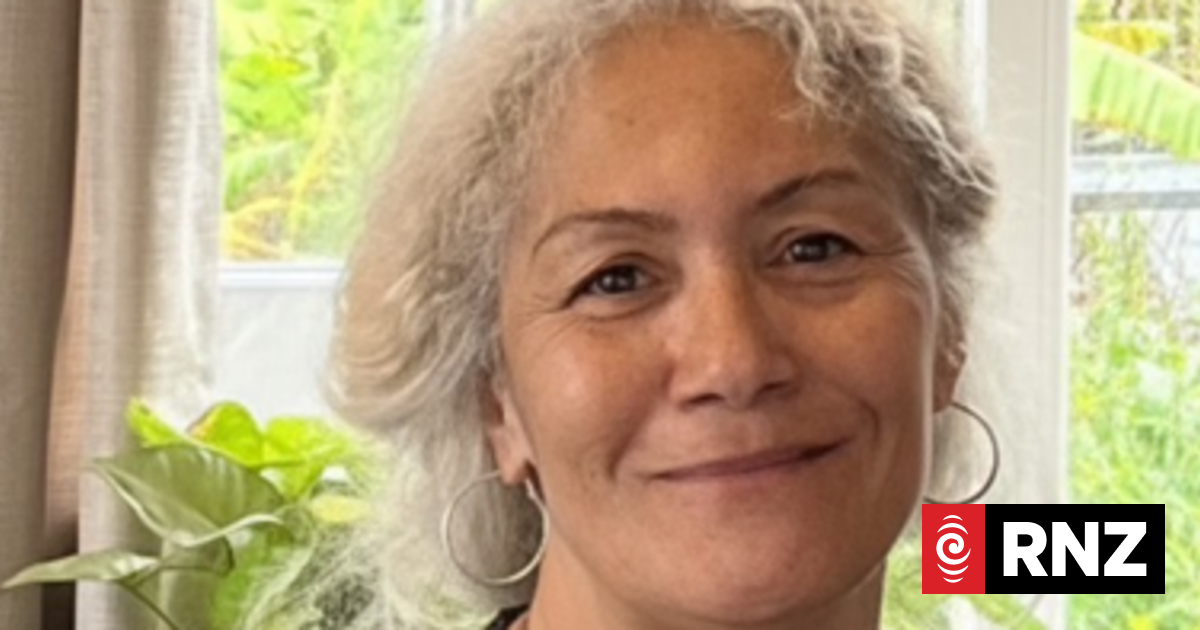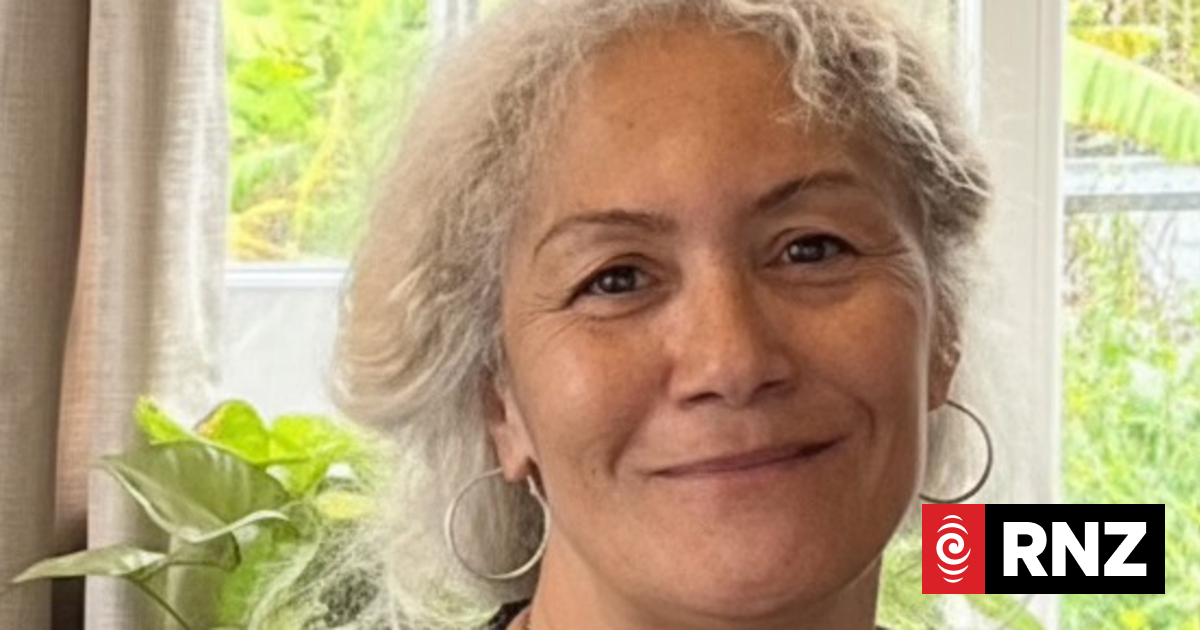Borja Ares, 37, and Alfiya Laxmidhar, 35, have lost $330,000 in an elaborate Citibank-branded investment scheme. Photo / Michael Cunningham
A Whangārei health worker tricked into losing his family’s entire life savings in an elaborate scam purportedly with one of the world’s biggest investment banks says he’s emotionally tortured by shame and feels he has “failed my wife and children”.
Borja Ares, 37, a Spanish national who is awaiting Kiwi citizenship, is seeking counselling and says he has an unnerving sense of “impending doom” since being taken in by professional scammers last month.
“I am terrified, I am scared all the time. I feel like something horrible is going to happen to my family.”
He and his wife, who work at Whangārei Hospital, sold their house on May 1 and were looking to invest the proceeds until repurchasing.
Advertisement
After paying their mortgage they had $330,000, which included savings, KiwiSaver funds and money sent from Ares’ mother in Spain to support the young couple and their two preschoolers.
“The idea was to keep it safe.”
Ares went online to research investment opportunities and found a website comparing term deposit interest rates, where he entered his details.
He was contacted that day by a man calling himself Simon David who claimed to be an investment broker from Citibank based in Auckland, and another called James Higgins. They competed with each other to convince Ares to invest in their portfolios.
Advertisement
Ares said he mainly dealt with David, convinced the man and investment opportunity were legitimate. It was as though he was “on automatic” and “controlled like a machine”.
“He got me in his net from the first second.
“He was like a really educated and softly spoken Englishman. He seemed really sincere and I think that put me off guard. It was like something emotional was activated in me. There was a trust. I don’t know how he manipulated me to trust him in this way.”
David sent Ares prospectus information about a range of investment options.
Ares settled on a fixed-rate Yorkshire Building Society bond that promised a generous annual interest rate of 13.5 per cent.
The broker told Ares the bond investment was triple-A rated, low risk and backed by Citibank. It was also attractive as he could withdraw his money at any time if the family bought their next house.
“It was perfect. I was fully convinced. I felt my money was very safe.”
The scammers appeared to be using 09 Auckland phone numbers.
Ares googled Simon David, who had a legitimate Linkedin profile. That profile now has a warning about people impersonating him “or others as Citibank executives”.
Ares also googled the scammer’s email address, which he claims linked back to the Citibank website.
Advertisement
And though he planned to ring Citibank direct to check on the investment’s authenticity, he says he ran out of time because of work and family commitments “and I was truly trusting”.
“I tend to be very safe in what I do. But I never doubted that they were genuine and every time I conducted a little due diligence I felt better.
“I think I am not a particularly gullible man. I try to be careful. But they got me, they tricked me.”
Ares consulted his wife about the investment.
“She just told me, ‘Go do whatever you want because I trust you’, so I am solely responsible.
“It is truly humiliating but there is truly no limit to how much they had me in their pocket.”
Advertisement
/cloudfront-ap-southeast-2.images.arcpublishing.com/nzme/IKCU27DRGRE4POQFU3ITV52PLQ.JPG)
He originally planned to invest $250,000, but the scammers convinced him to commit everything he had during communications spanning 12 days.
They sent him a Citibank-branded payment instruction form listing an ASB account where he should deposit the money, which he believed was in his own name.
But the $330,000 exceeded the amount his own bank, BNZ, would transfer in a single day, so the scammers “coached” him to split it into two $165,000 payments.
On May 11, Ares phoned BNZ and authorised the first money transfer, telling staff he was “investing in Citibank”.
He claims he was not questioned about the legitimacy of the recipient or warned about a global Citibank scam, which has made headlines here and overseas.
The case is nearly identical to that of North Shore real estate agent Carla O’Neil, who lost $100,000 this year in a Citibank-branded scam involving a man with the same English accent and same name. She also transferred the money from BNZ.
Advertisement
Ares made the final cash transfer the next day and was then sent log-in details to a sophisticated “client portal” where he could track his investment.
None of it was real and nine days later his world came crashing down.
Ares and his wife had family over for dinner. He was discussing the investment and mentioned the 13.5 per cent interest rate and says “it was like a bubble exploded”.
“The moment I verbalised it out loud I thought, ‘That sounds too good to be true’.”
/cloudfront-ap-southeast-2.images.arcpublishing.com/nzme/NHA7C3TGEZHEVNR6UWNMZXNPGE.jpg)
After his guests left he googled “Citibank scam” and realised he’d been hoodwinked.
“I was full of delusional ideas that I was going to get my money back. I was like, ‘No, Simon wouldn’t do that to me’.”
Advertisement
He then read the Herald story about O’Neil and found a scam warning on Citibank’s website.
He woke his wife. They talked for a while and cried, before calling the Citibank fraud line and contacting BNZ and police.
Ares said he’d been awaiting updates on the investigations and was concerned about the lack of progress and communications.
He also contacted the Banking Ombudsman and said an advocate told him the scam was well known to New Zealand banks and BNZ should have been alert to the risk.
Asked how he was coping, Ares said: “Mornings tend to be better. I am more upset and angry, and as the day goes by I start feeling like an idiot, that I’ve failed my wife and children. It’s like a rollercoaster.”
He said his wife didn’t blame him and she was the rock holding the family together.
Advertisement
“We are safe, the children are safe, so that’s the solace we take.”
He was speaking out to prevent others from being caught in what is thought to be a global network of professional scammers.
A BNZ spokesman said scams were increasingly sophisticated and often preyed on people’s trust in reputable brands.
BNZ was working with ASB to determine if any of Ares’ funds were recoverable.
He had “unknowingly engaged” with a scammer while searching online for investment services and initiated the money transfers after querying how to increase his transfer limit.
When asked about the money transfer, Ares told staff it was going to his own ASB account, the spokesman said.
Advertisement
“While he did mention the transfer was for an investment at Citibank, as he said he was transferring the funds to his own account, our banker processed the transaction.”
Within 15 minutes of being alerted to the fraud, BNZ began work to recover the stolen money.
Investigations could be complex and lengthy and “it would be premature to comment on any potential outcome at this time”.
BNZ urged customers to exercise “extreme caution” before investing money, to be sceptical of unsolicited investment offers, and to contact investment firms through their official New Zealand-based websites or publicly listed phone numbers – never via unprompted online, email or phone contacts.
ASB said it placed an immediate hold on the recipient account to secure any remaining funds, and sought the recovery of any transferred funds.
ASB had received a police production order and would provide all relevant information.
Advertisement
It would inform BNZ if any funds were available for return to the customer.
Citibank said scammers in New Zealand were impersonating its brand and urged people to remain vigilant.
Citibank did not offer financial products or services to retail clients, or send unsolicited inventment offers.
Golden rules of avoiding scams
- Contact investment firms via their official New Zealand-based websites, and never via online contacts, emails, links or phone numbers sent to you directly or from other websites.
- Be sceptical of unsolicited investment offers and verify the credentials of any investment adviser by contacting them directly via their publicly listed phone number.
- Ensure the investment firm is licensed by the Financial Markets Authority.
- If the investment looks too good to be true it probably is.
- Never open links in text messages or emails.
- Never open attachments from unknown senders.
- Always check the sender of an email to make sure the address is right, especially if the email seems a bit odd.
- Urgency is a flag – scammers will try to rush you.
- Contact your bank as soon as possible if you think you’ve been scammed. The sooner it’s reported the better chance of recovering money.
- Trust your gut – if it feels wrong, it probably is.
Source: BNZ



